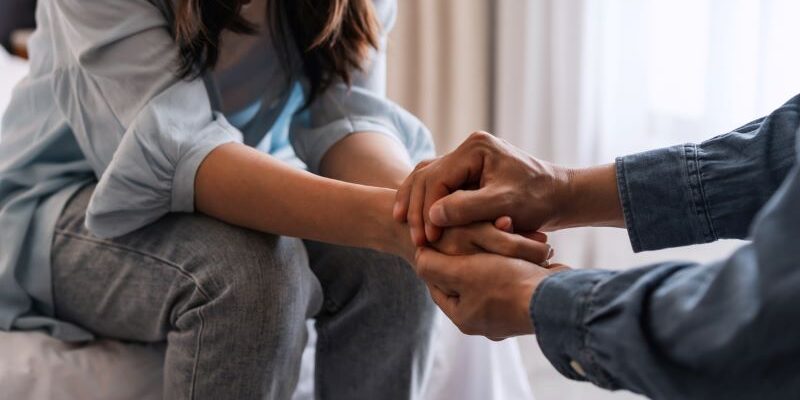| By Gale Staff |
August 30 is National Grief Awareness Day, a day intended to recognize the enormous impact of loss, deepen our collective understanding of grief, and reduce stigma around grief and grieving. Because while grief is a universal human experience, it is deeply personal, and too often misunderstood or even stigmatized. This annual day of observance is an opportunity to initiate conversations, offer support, and encourage healing through awareness, understanding, and compassion.
Grief is a natural emotional response to loss—most often the death of a loved one but also sparked by other life changes such as the end of an important relationship, loss of a job, a serious health challenge, or any life event that threatens our sense of stability. It encompasses a range of emotions: sadness, anger, confusion, guilt, and sometimes even relief. There is no “right” way to grieve and no timeline for how long people “should” grieve.
Grieving describes the internal experience of loss—the emotional and psychological reactions we have as we come to terms with the absence of someone or something important in our lives. Mourning is the outward expression of grief and may include rituals like funerals or other cultural practices or traditions that help us process and express sorrow in community.
Grief is not the same for every person on every occasion—there are many forms of grief:
- Anticipatory grief may begin before a loss, such as during a loved one’s terminal illness.
- Complicated grief involves intense sadness that doesn’t subside over time and interferes with daily life.
- Disenfranchised grief occurs when a loss is not acknowledged or supported, such as the death of a beloved pet, a miscarriage, or the end of a nontraditional relationship.
- Cumulative grief can develop when a person suffers multiple losses over a short period.
Understanding the different types and expressions of grief is essential to offering meaningful support. National Grief Awareness Day encourages us to recognize and observe these experiences, without judgment, and extend compassion no matter what the nature of the loss.
Supporting someone who is grieving can make a tremendous difference. Though you can’t eliminate their pain, small caring gestures can be deeply healing. Here are a few ways to help:
- Listen without giving advice about how to feel or how to grieve. Offer a safe space where emotions can be expressed freely.
- Acknowledge the loss. Simply saying “I’m so sorry for your loss” can be more meaningful than you think.
- Be patient. Grief doesn’t have a timetable or schedule. Try not to pressure someone to “move on.”
- Offer practical, tangible aid. Home-cooked meals, help with errands, or simply checking in regularly can be invaluable.
- Respect the fact that people grieve differently. Some people grieve privately; others seek community and connection. Respect and honor both.
When you yourself are grieving or you’re helping someone else, it’s vitally important to support physical, emotional, and mental health:
- Give yourself permission to feel. Suppressing grief can lead to more complicated issues later.
- Focus on self-care. Get adequate rest and nourishment. Grief can be exhausting; your body needs care.
- Seek support. Talk to friends, join a support group, or reach out to a mental health professional.
- Create acts or rituals of remembrance. Honoring your loved one through writing, art, or tradition can be cathartic.
- Avoid harmful coping mechanisms. Substance use or isolation may numb pain temporarily but often worsens grief.
Too often, grief is minimized, buried, or seen as something to “get over.” This cultural discomfort with mourning can lead to feelings of shame or isolation for those in grief. Normalizing grief means acknowledging that it’s a healthy and essential part of life. Just as we celebrate birth, we must also learn to honor loss.
Eliminating the stigma around grief and loss helps promote emotional healing. When people feel free to grieve openly—without fear of judgment—they are more likely to access the support they need.
Fostering Empathy and Understanding
National Grief Awareness Day reminds us that grief touches everyone. By cultivating empathy, we create more compassionate and resilient communities. Grief should not be denied, suppressed, or hidden; it needs to be witnessed and honored.
Let’s resolve to open our hearts to those who are grieving. Whether by checking in on a friend, sharing your own story, or simply offering a listening ear, your compassion can make a difference.


